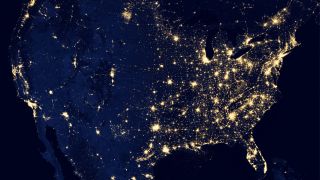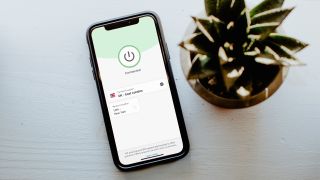How to use a VPN to speed up your internet
Use a VPN to avoid network throttling and speed up your connection

While it’s common knowledge that even the best VPN will slightly slow down your maximum connection speed, few people know that one of the most ingenious VPN uses is speeding up your connection. But how can that work?
Here, we’re going to give you a brief guide on how to use a VPN to speed up your internet connection, in what situations that might be possible, and if it’s something worth you doing.
How does a VPN speed up internet?
Every internet plan on the market has a maximum speed – that could be 10Mbps or 600Mbps, or anywhere in between and sometimes higher – but that’s not the speed you’ll experience all the time. Your ISP (internet service provider) monitors its customers’ traffic and, if it detects certain activities, it can ‘throttle’ your connection.
Throttling is the controversial practice of slowing down individual users’ connections to either discourage them from engaging in a certain activity or save bandwidth at peak times. Sometimes an ISP will throttle every user’s connection – something a VPN can’t avoid – but for selective throttling a VPN is very useful.
How can a VPN avoid network throttling?
ISPs can see what you’re doing with your internet connection, and they monitor this for activity which is worthy of throttling. Sometimes that could be gray areas such as torrenting, but it has also been observed in innocent yet high-bandwidth situations like online gaming and streaming HD TV.
No matter what you’re doing on the web, we think you should be getting what you pay for from your ISP. If you want to guarantee that, use a VPN.
A VPN directs your connection through its own encrypted servers to entirely anonymize your traffic. That means no one, including your ISP, the government or even the VPN itself can see what you’re using your bandwidth for. In turn, that means your ISP can’t single you out as a user who is, for example, sharing P2P, and subsequently can’t make the decision to throttle your connection.
Sign up to get the BEST of Tom’s Guide direct to your inbox.
Upgrade your life with a daily dose of the biggest tech news, lifestyle hacks and our curated analysis. Be the first to know about cutting-edge gadgets and the hottest deals.

What VPN is best for avoiding throttling?
It goes without saying that if you want to avoid network throttling you’ll need a fast VPN. On top of that, you’ll also want rock-solid security features to make sure your personal data isn’t compromised, and a reliable support system (ideally 24/7 live chat) to assist if you notice your connections dropping or need help setting up.
Save 49% and get three months free of our top-rated VPN
Ticking all of those boxes is ExpressVPN, which is our all-round top-rated VPN. On top of great privacy and excellent speeds, you’ll also have over 3,000 servers in 94 countries to choose from, plus it’s an excellent streaming VPN that can unblock pretty much anything you want – that includes Netflix, BBC iPlayer, Hulu, and it's even a great Peacock VPN.
It has excellent apps that are super easy to use, but if you like to get under the hood you’ll also find tons of in-depth features like a kill switch, split tunnelling and Perfect Forward Secrecy. And, if that wasn’t enough, there are apps for almost every device – for example, it tops our best Android VPN and our best Fire Stick VPN guides.
Tom’s Guide readers can now claim three months free of ExpressVPN, meaning you’ll get 15 months for the price of 12. And, you’ll also get a 30-day money-back guarantee in case the service doesn’t work exactly how you want it to (but we don’t think it’ll come to that). Overall, if you want to avoid network throttling and speed up your connection, ExpressVPN is your best choice.

Mo is VPN Editor at Tom's Guide. Day-to-day he oversees VPN, privacy, and cybersecurity content, and also undertakes independent testing of VPN services to ensure his recommendations are accurate and up to date. When he's not getting stuck into the nitty-gritty settings of a VPN you've never heard of, you'll find him working on his Peugeot 205 GTi or watching Peep Show instead of finally putting up those shelves.

